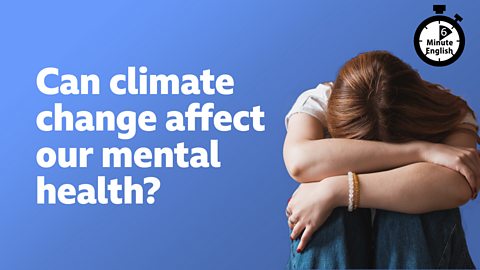Feeling the Heat: How Climate Change is Impacting Kiwi Mental Wellbeing

New Zealanders are known for our resilience, our love of the outdoors, and our close connection to the land. But increasingly, our mental wellbeing is being affected by something bigger than ourselves: climate change. It’s not just about rising sea levels and extreme weather events; it’s about the emotional toll these experiences take on individuals and communities.
The Rising Tide of Climate Trauma
The term 'climate trauma' is gaining traction, and for good reason. It describes the lasting emotional distress caused by experiencing or witnessing climate-related events, such as floods, droughts, wildfires, and cyclones. Think about the devastation from recent cyclones in the North Island. For those directly impacted – losing homes, livelihoods, or loved ones – the trauma can be profound and long-lasting. But it’s not just those directly affected. Even witnessing these events on the news, or hearing stories from others, can trigger anxiety, fear, and a sense of helplessness.
Beyond the Immediate Disaster: Chronic Climate Anxiety
While immediate trauma is a serious concern, the impact of climate change on mental health extends far beyond the immediate aftermath of a disaster. Many Kiwis are experiencing what’s known as 'climate anxiety' or 'eco-anxiety' - a chronic fear of environmental doom. This can manifest as feelings of sadness, hopelessness, anger, guilt, and powerlessness about the future of our planet. Young people, in particular, are reporting high levels of climate anxiety, feeling burdened by the responsibility of addressing a problem they didn't create.
Who’s Most Vulnerable?
While climate change impacts everyone, certain groups are disproportionately vulnerable to its mental health consequences:
- Rural Communities: Those reliant on agriculture and primary industries are often acutely impacted by droughts, floods, and changing weather patterns, leading to financial stress and uncertainty.
- Māori and Pacific Communities: These communities often have a deep cultural and spiritual connection to the land and sea. Climate change threatens these connections and traditional ways of life, causing significant distress.
- Low-Income Families: They are often less resilient to the economic impacts of climate-related disasters and may lack the resources to recover.
- Young People: As mentioned, they are particularly concerned about the future and are grappling with the weight of environmental responsibility.
What Can We Do?
Addressing the mental health impacts of climate change requires a multi-faceted approach:
- Acknowledge and Validate Feelings: It’s okay to feel anxious, sad, or angry about climate change. Talk about it with friends, family, or a mental health professional.
- Take Action: Engaging in climate action, even in small ways, can help reduce feelings of powerlessness. Support sustainable businesses, advocate for policy changes, and reduce your own environmental footprint.
- Connect with Nature: Spending time in nature can be restorative and grounding.
- Seek Professional Help: If you’re struggling with climate anxiety or trauma, don't hesitate to seek help from a therapist or counsellor.
- Community Support: Building strong, supportive communities is essential for coping with the challenges of climate change.
Climate change is a complex and daunting challenge, but by acknowledging its impact on our mental wellbeing and taking proactive steps to address it, we can build a more resilient and sustainable future for all Kiwis. Let's look after ourselves, and each other, as we navigate this changing world.





